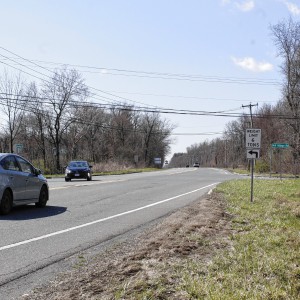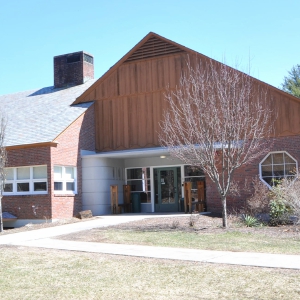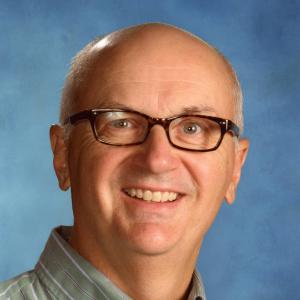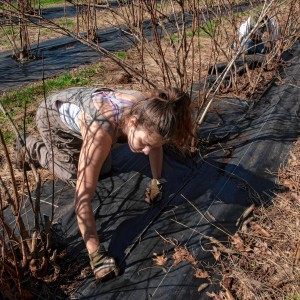Comerford secures $1.1M for area groups: UMass Wet lab, doula program highlight list
| Published: 05-31-2023 7:00 AM |
By JAMES PENTLAND
NORTHAMPTON — With passage of the state Senate’s $55.9 billion budget last week, a number of area organizations can look forward to a financial boost to the tune of $1.15 million at the beginning of the new fiscal year.
Topping the list of government aid recipients in Sen. Jo Comerford’s Hampshire and Franklin county district is the University of Massachusetts Water and Energy Technology Center, known as the WET Lab, which is in line for $500,000. This and all proposed funding has to survive the reconciliation process between the House and Senate budgets and be approved by Gov. Maura Healey before becoming final.
The center, which researches technology for removing contaminants in drinking water and wastewater, has shifted much of its focus in recent years to PFAS, chemicals used to make products waterproof, stick-proof and stain-proof that have become recognized as a widespread health problem. The Teflon-type compounds can cause kidney and prostate cancers and elevated cholesterol levels, and can have negative effects on reproductive and immune systems.
The state money will go toward a new building for the lab, which has been operating out of a 60-by-20-foot prefabricated structure, according to David Reckhow, a research professor who is the center’s faculty manager.
“We’re working toward cobbling together a total package for the buildout,” Reckhow said, noting that the project received $1.5 million last year and has a pledge of another $1 million from the UMass chancellor. “Everyone has been tremendously giving and supportive.”
Comerford, D-Northampton, said Tuesday the lab is on the cutting edge of research in its field, having an impact far beyond the confines of UMass.
“They’re doing some of the most important public health work in the nation,” she said.
Article continues after...
Yesterday's Most Read Articles
 South Hadley man fatally shot in attempted robbery
South Hadley man fatally shot in attempted robbery
 Smith College exhibit explores Sylvia Plath’s botanical inspiration
Smith College exhibit explores Sylvia Plath’s botanical inspiration
 Holyoke man finds bear paw in his yard
Holyoke man finds bear paw in his yard
 Guest columnist Bill Dwight: How to make sense of Northampton’s school budget dilemma
Guest columnist Bill Dwight: How to make sense of Northampton’s school budget dilemma
 South Hadley’s Lauren Marjanski signs National Letter of Intent to play soccer at Siena College
South Hadley’s Lauren Marjanski signs National Letter of Intent to play soccer at Siena College
 Deerfield residents petitioning to fix ‘dangerous’ intersection
Deerfield residents petitioning to fix ‘dangerous’ intersection
Until last year, Reckhow said, the lab was working with the state Department of Environmental Protection to manage the statewide testing program for PFAS (per- and polyfluoralkyl substances) in public and private sources of drinking water. It is now writing up a study on the performance of various devices for removing PFAS from water, he said.
As things stand, Reckhow said, the lab, with about a dozen people, is bursting at the seams, with team members using outdoor bays for some of their work. The new building, which he estimated would cost $6 million, is set to be built on the same one-acre site as the existing lab and will be several times the size.
“It would allow us to do so much more,” he said.
There are a number of approaches to removing PFAS from drinking water, Reckhow said, including absorptive technology, but the “holy grail” is to destroy the chemicals. To that end, researchers are working on electrochemical processes and radio frequencies, among other options.
“The key is how to do it fast and cheap without using a lot of electricity,” he said.
The Senate budget also includes $150,000 for a doula training program run by Seven Sisters Midwifery in Florence. Doulas serve as coach and advocate for the expecting mother through the birth process.
Owner Kirsten Kowalski, a certified nurse midwife, said the plan is to offer two six-month mentorship programs for doulas, whose training often lacks opportunities to gain experience in their work.
Seven Sisters does about 200 births a year, Kowalski said, and many doulas are looking to be involved in births at a midwifery practice.
Basic training for doulas frequently consists of a long weekend, after which they need to gain experience in order to become certified or just be paid. With Seven Sisters’ proposed training program, four to six doulas will be able to take the next step, gain the experience they need working under experienced doulas and receive a stipend while doing so.
“I was a doula myself,” Kowalski said. “We are thrilled every time a doula comes and works with us.”
Comerford said the Senate was putting an emphasis on health equity and racial equity in health care, and Seven Sisters had reached out to her to talk about the training program for doulas, who play an important role in maternal health care, she said.
“Doulas are part of a birthing team,” Comerford said. “We need a workforce training program.”
Other awards announced by Comerford’s office include:
■$100,000 for the Western Massachusetts Veterans Outreach Project’s Just Ask Campaign, which seeks to ensure that health care providers are responsive to the care that veterans need. The project is using the money to launch a yearlong pilot project in coordination with Cooley Dickinson Hospital.
■$30,000 for Karuna Center for Peacebuilding’s Paula Green Legacy Fund to support local peace-building partner organizations.
■$45,000 for Pioneer Valley Mosquito Control District to support its regional mosquito control work. The money will allow the district to hire a full-time staff person and defray costs for member communities.
■$35,000 for Trauma Informed Hampshire County to promote the initiative’s work of healing trauma.
■$43,750 for the Education Commonwealth Project to pilot alternative performance assessments in lieu of high-stakes standardized state tests.
■$50,000 for Quabbin Mediation, providing free legal mediation services for 140,000 area residents, including Hampshire and Franklin county communities east of the Connecticut River.
“It’s nothing to take for granted,” Comerford said of the funding. “We’re gearing up to ask the conference committee to meet soon and to keep the earmarks.”

 Leverett Town Meeting voters will decide cease-fire call, budgets, town elections
Leverett Town Meeting voters will decide cease-fire call, budgets, town elections  A Look Back: April 22
A Look Back: April 22 Regional farming alliance strengthens educational, networking opportunities for apprentices
Regional farming alliance strengthens educational, networking opportunities for apprentices
